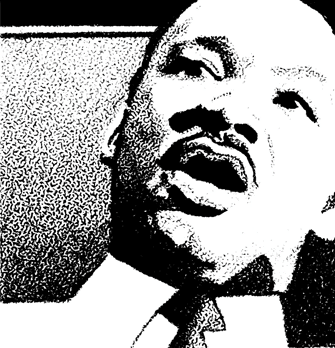I am am member of the PhD-Design listserv, “a list for discussion of PhD studies and related research in Design.” I am not very active on the list but have found it an invaluable resource that helps me think. The dialogue is often of pretty high quality and I have learned a lot just by lurking. Recently the discussion focused on the “craft, guidelines, and traditions of research.” Dr. Ken Friedman posted a note which he adapted from a summary statement prepared for a 2006 conference on research (Summary Statements from the UK AHRC Practice-Led Review). I recommend reviewing the entire document since it provides an intelligent and thoughtful summary of the discussions that occurred at the conference. This post however, focuses on what Ken calls “a small library of nine valuable books that will help Ph.D. students do serious work—as well as helping supervisors do a solid job in supervising… These books can help to teach and develop good research habits, habits of mind and habits of behavior.” I thought that this would be of great help to our graduate students and got his permission to include his list here.
 And before we start, a short introduction to Dr. Friedman. Dr. Friedman is University Distinguished Professor and Distinguished Professor of Design at Swinburne University of Technology as well as a Guest Professor at the College of Design and Innovation at Tongji University, Shanghai. He works with design theory and design thinking for innovation. In 2008, he was awarded the the DSc honoris cause for outstanding contributions to design research. In fact one of the greatest pleasures of being part of the PhD-Design listserv is reading Ken’s lucid, erudite thought-provoking and informative posts. If this were not enough, Ken is also a “seminal figure in Fluxus, an international laboratory for experimental art, architecture, design, literature, and music.” Check out his wikipedia page to find out more. A bunch of his publications can be found on his Academia.edu page. I had previously blogged about an interaction with Ken I had a few years ago about the stages of learning for mastery. Those posts can be found here (a) From incompetence to mastery, the stages and (b) Unconscious competence, continuing the dialogue and are a great example of the breadth and depth that Ken brings to the discussion.
And before we start, a short introduction to Dr. Friedman. Dr. Friedman is University Distinguished Professor and Distinguished Professor of Design at Swinburne University of Technology as well as a Guest Professor at the College of Design and Innovation at Tongji University, Shanghai. He works with design theory and design thinking for innovation. In 2008, he was awarded the the DSc honoris cause for outstanding contributions to design research. In fact one of the greatest pleasures of being part of the PhD-Design listserv is reading Ken’s lucid, erudite thought-provoking and informative posts. If this were not enough, Ken is also a “seminal figure in Fluxus, an international laboratory for experimental art, architecture, design, literature, and music.” Check out his wikipedia page to find out more. A bunch of his publications can be found on his Academia.edu page. I had previously blogged about an interaction with Ken I had a few years ago about the stages of learning for mastery. Those posts can be found here (a) From incompetence to mastery, the stages and (b) Unconscious competence, continuing the dialogue and are a great example of the breadth and depth that Ken brings to the discussion.
Below are excerpts (edited lightly) from the posting by Dr. Friedman, used with permission (see original post here).
The 9 essential books for graduate school
This is a short, selective bibliography of useful books. This is not a list of books on research methodology, methodics, method, or technique. These books address the larger habits of mind within which specific research acts take place…. If you are a research student, the time you invest in reading these books will be time saved in writing a solid thesis – and time gained in developing a successful research career. Even if you do not read every word, you’ll learn a lot by careful browsing.
If you teach and supervise research, you may already know these books. If you don’t, you should. Those of us who are paid to teach and supervise research owe it to our students and we owe it to ourselves to know this literature – and use it.
The Craft of Research
Booth, Wayne C., Gregory G. Colomb, and Joseph M. Williams. 2008. The Craft of Research. Third Edition. Chicago: University of Chicago Press.
This is a central volume in the series of books on different aspects of the profession and practice of research from the University of Chicago Press. It is a superb introduction to research issues.
Supervising the PhD
Delamont, Sara, Paul Atkinson, and Odette Parry. 2004. Supervising the Doctorate. Second Edition. New York: Open University Press.
The issue of research supervision is now a central theme in many fields. The skill of tutoring and supervising research is even more difficult to acquire than the skill of doing research. In theory, studying for a PhD should help the doctoral student to develop research skills. No degree programs or general courses train research supervisors. Greater attention to the issue of supervising research students means that this literature is an important contribution. This book is one of the first and still one of the few that helps supervisors, whatever field they work in.
Working for a PhD
Peters, Robert L. 1997. Getting What You Came For. The Smart Student’s Guide to Earning a Master’s or Ph.D. New York: The Noonday Press.
Rugg, Gordon, and Marian Petre. 2010. The Unwritten Rules of PhD Research. Second Edition. New York: Open University Press.
Several dozen books offer advice on earning a research degree. Most are pedestrian. Some are uninformative and others mislead students who do not know enough to ignore incorrect information and problematic assertions.
These two books are useful and well structured. These cover all fields, providing information on general research issues and skills, as well as useful information on surviving and thriving as a doctoral student. I recommend these books to students and to their supervisors.
Research Careers and Academic Life
Sternberg, Robert J. 2004. Psychology 101 1/2. The Unspoken Rules for Success in Academia. Washington, D.C.: American Psychological Association.
Feibelman, Peter J. 2011. A Ph.D. Is Not Enough! A Guide to Survival in Science. Second Edition. Philadelphia: Basic Books.
One common gap in doctoral education involves helping research students prepare for the transition from study to career. These two books are particularly helpful. The first covers all fields. While the second is written for the sciences, it offers ideas that every scholar can use.
Scholarly Publishing
Huff, Anne Sigismund. 1999. Writing for Scholarly Publication. Thousand Oaks, California: Sage Publications.
Silverman, Franklin. 1999. Publishing for Tenure and Beyond. Westport, Connecticut: Praeger.
Two excellent books address the craft of scholarly publishing. Huff’s book addresses the art of writing. Silverman discusses the relation of publishing to career development, offering important advice on conceptualizing and preparing a publishing strategy.
Presenting Research
Anholt, Robert R.H. 2005. Dazzle ‘Em with Style. The Art of Oral Scientific Presentation. Second Edition. Burlington, Massachusetts: Elsevier Academic Press.
Conferences and seminars are a central medium for sharing research and for becoming visible in a research field. Several books help students and experienced academics learn how to present findings in seminars and at conferences. The best of these is Robert R. H. Anholt’s book. Anholt, a professor at Duke University Medical Center, has been helping students in many fields learn to succeed on the conference circuit. While this book is written for natural scientists, it offers equally valuable advice for the humanities and social sciences. The title is catchy, but the book is solid, concise, and well crafted.
In conclusion
If you’re saying to yourself that this is a lot of reading, you’re right and you’re wrong. Folks who go to first-rate doctoral programs read a lot – that is the nature of research. You’re right that there is a lot of reading to do if you don’t know the skills and information in these books. What you learn here will save you time in research, though, so it is not a lot of reading with respect to the value of future gains… If you are a PhD supervisor … who earned a PhD in the social sciences, anthropology, psychology, economics, informatics, engineering, or education, you probably have a greater repertoire of research and supervision skills. You also know from experience that it is possible to improve our skills even after a solid foundation in research. These books will help.
Note: This post has been cross-posted on ideaplay.org




Aman Yadav suggested one more book to add to the list: How to write a lot by Paul Silvia. ~ punya